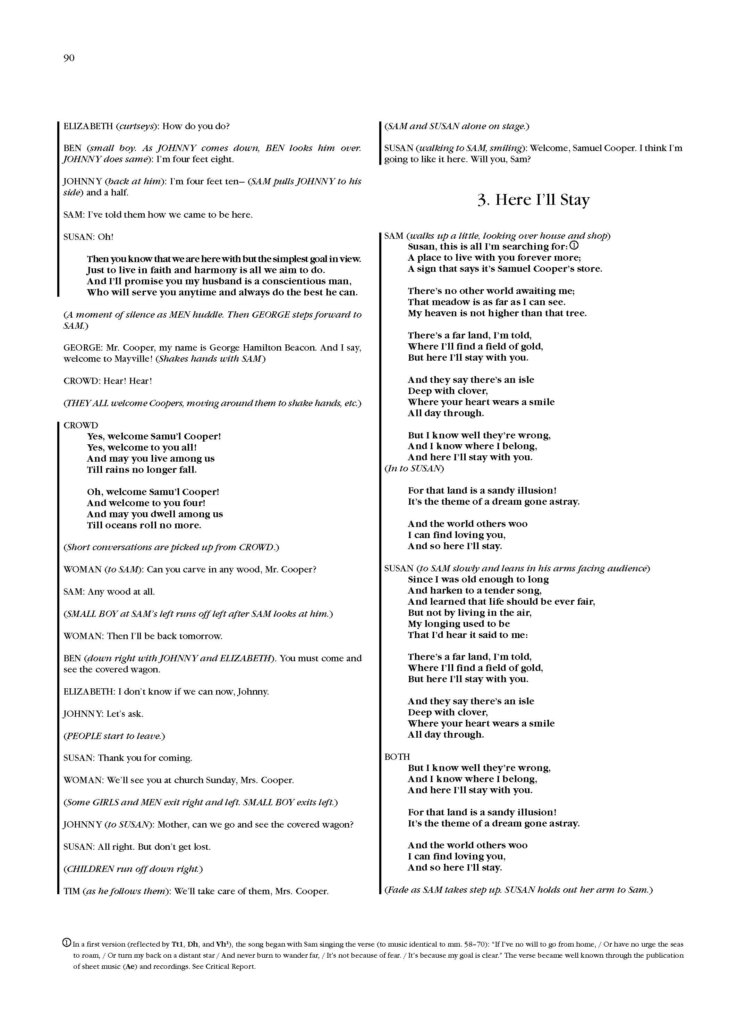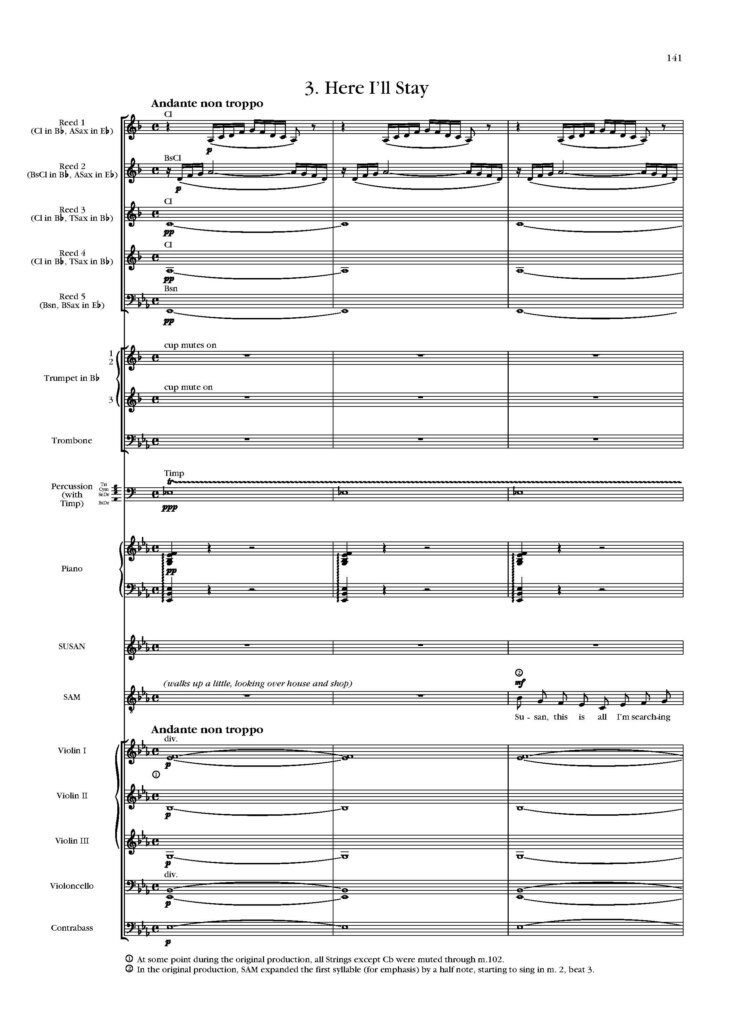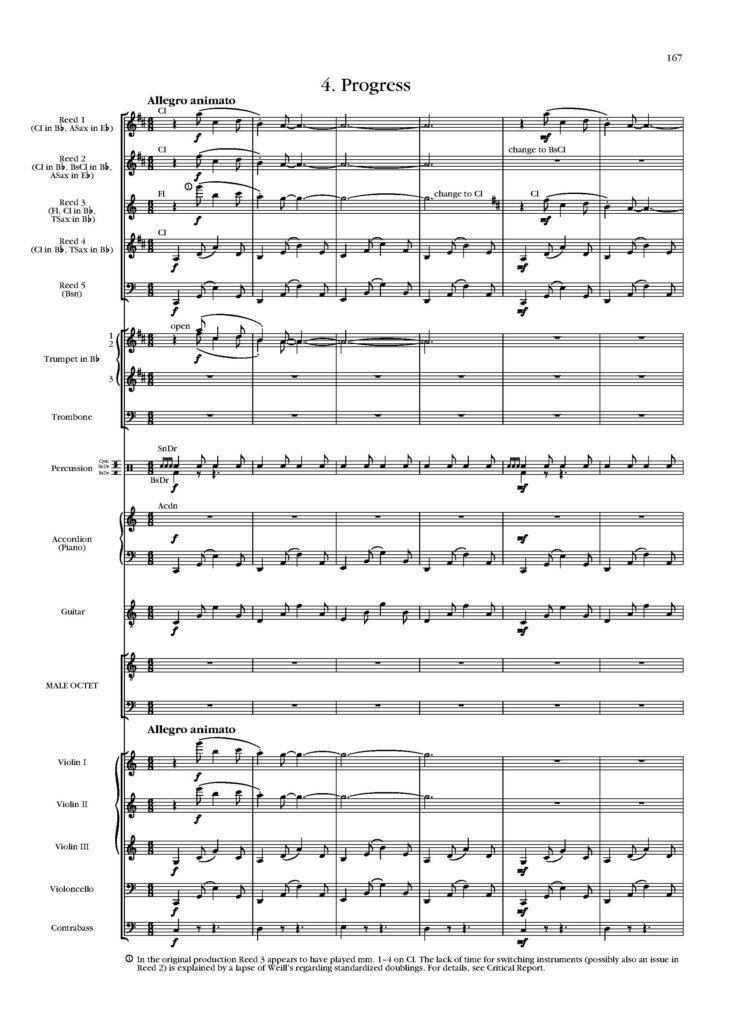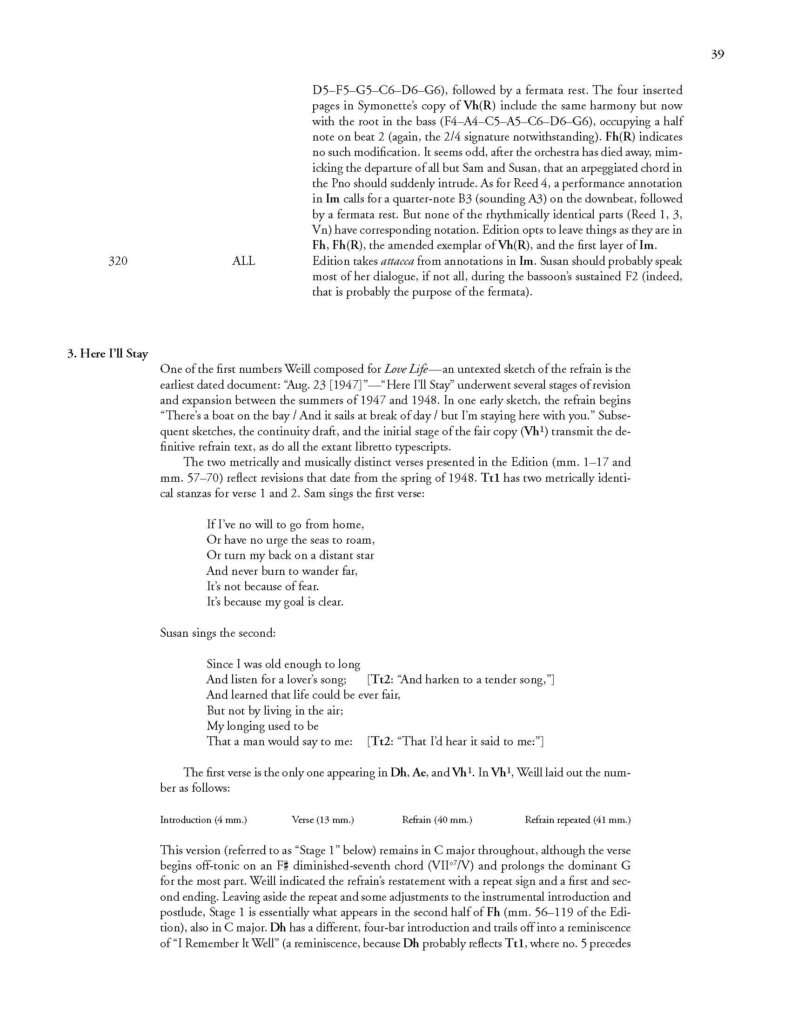Series I, Volume 21: Love Life (2023)
Back to all works-
Pages
1020 pp (main volume [2 vols.])
237 pp (critical report) -
ISBN
978-1-62721-905-1
-
Price
$695 (subscribers)
$990 (non-subscribers)
A Vaudeville in Two Parts
Book by Alan Jay Lerner
Music and Lyrics by Kurt Weill and Alan Jay Lerner
Edited by Joel Galand
This volume was awarded the 2024 CLAUDE V. PALISCA AWARD by the American Musicological Society. The Palisca is among the most prestigious awards in the world recognizing excellence in the creation of scholarly editions and translations. Bestowed annually, the award pays tribute to the publication judged by a committee of scholars “to best exemplify the highest qualities of originality, interpretation, logic and clarity of thought, and communication.”
In 2024, the Music Publishers Association of the United States awarded this volume one of its PAUL REVERE AWARDS FOR GRAPHIC EXCELLENCE. Each Revere recognizes an “outstanding example of graphic design, with an emphasis on usability for orchestras, educators, libraries and individuals.”
Overview
This critical edition is a major milestone: edited by distinguished scholar Joel Galand, it presents the first publication in any form of both the complete score and book of Love Life. Producers, performers, and scholars will at last have full access to the show that is simultaneously one of Weill’s least known and yet most influential works. Victim of a labor dispute that prevented the recording of an original cast album at the time of its first production in 1948, Love Life’s inspirational position as one of the first concept musicals on Broadway has been acknowledged among professionals but remains largely invisible to a broader public. Stephen Sondheim himself opined that “most people didn’t see Love Life, so they don’t think of it as having the kind of effect that Oklahoma! had. But I think it did.”
From Joel Galand’s Introductory Essay:
“The set designer of Love Life, Boris Aronson, suggested in 1973 that ‘There were enough ideas in this show for twenty musicals…. Throughout, the vaudeville numbers served as comments on the preceding scenes. In many ways, this show may have been the forerunner of today’s so-called ‘concept’ musical.’ Even he was confused, however: his ‘preceding scenes’ are, in fact, ‘following’ ones. But Love Life, which Weill described as ‘an entirely new form of theater,’ did indeed anticipate many of the traits associated with innovative musicals of the 1960s and ’70s, and almost all the creators of those later shows had seen it. Its formal organization, especially its paratactic deployment of commentary numbers and book scenes, predates Cabaret and its immediate successors by nearly two decades. Yet despite its position within Weill’s output and the subsequent development of American musical theater, Love Life remains, more than seven decades later, a historical footnote — better known of than known. Apart from the few who have seen it staged, and the fewer still who know its archival materials, scholars and performers have been unable to evaluate it for themselves. This Edition makes that possible by presenting for the first time its full score and complete text.”



